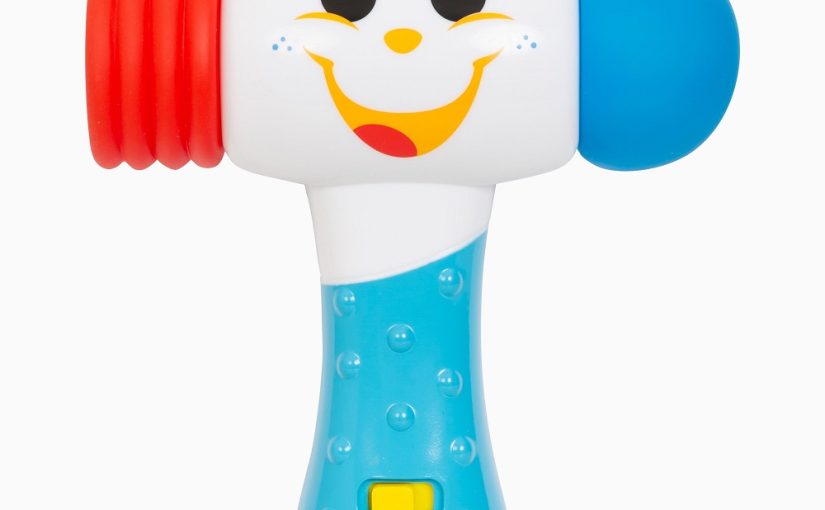Choosing the right toys for babies is crucial for their growth and development. Baby development toys serve an essential purpose in enhancing various skills while providing entertainment. These toys can stimulate cognitive abilities, encourage motor skills, and promote social interaction. In an age when parents seek to engage their little ones meaningfully, the market is filled with innovative options. This article explores how different baby development toys aid in boosting skills through fun and play.
The Importance of Play in Early Development
Play as a Learning Tool
Play is often referred to as the language of children. When babies play, they engage in critical learning activities that help shape their future. Through play, babies learn to explore their environment, develop relationships, and understand the world around them. Research has shown that play promotes cognitive, physical, social, and emotional development.
From birth to two years, a baby’s brain develops at an astonishing rate. During this time, play provides a foundation for the skills they will build upon as they grow. Interactive play helps babies learn cause and effect, enhances their problem-solving abilities, and fosters creativity. Parents and caregivers play a vital role in guiding these play experiences.
Types of Play
There are different types of play that contribute to a baby’s overall development. Sensory play involves activities that stimulate the senses, such as touch, taste, sight, sound, and smell. Games that engage a baby’s senses help develop neural pathways in the brain, leading to better sensory processing later in life.
Physical play is equally important, helping babies develop gross and fine motor skills. Activities like crawling, reaching, and grasping strengthen muscles and enhance coordination. Social play, often involving parents or siblings, promotes interaction and communication. This variety ensures well-rounded development and helps babies become confident, capable individuals.
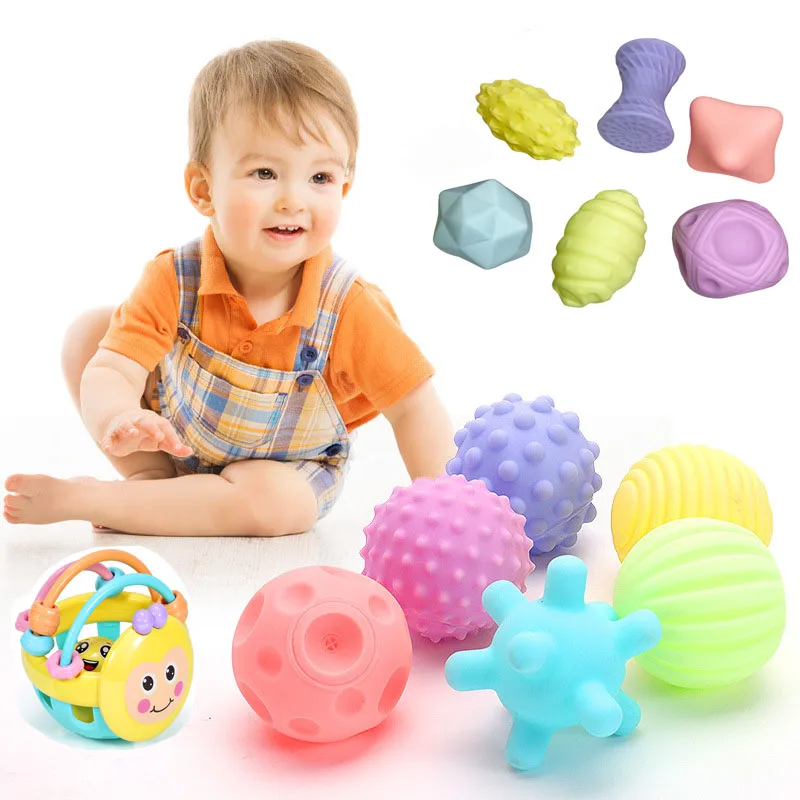
Choosing the Right Development Toys
Age-Appropriateness
When selecting development toys for babies, it is essential to consider their age and developmental stage. Toys designed for younger infants should be simple, safe, and engaging. As babies grow, their toys should evolve to challenge their developing skills.
For newborns, colorful soft toys or rattles stimulate visual and auditory senses. As babies reach six months, they require toys that encourage them to grasp, shake, and explore. By the time they are closer to a year old, toys with buttons, lights, or moving parts can captivate their attention and promote problem-solving skills.
Safety Considerations
Safety is paramount when selecting baby development toys. Always choose toys made from non-toxic materials that are free from small parts to avoid choking hazards. Checking for labels and certifications indicating safety standards can provide peace of mind.
Moreover, consider the durability of the toys. Babies tend to explore everything with their mouths, so select toys that can withstand rough handling and cleaning. Understanding safety guidelines can help in making informed decisions that support the well-being of your child.
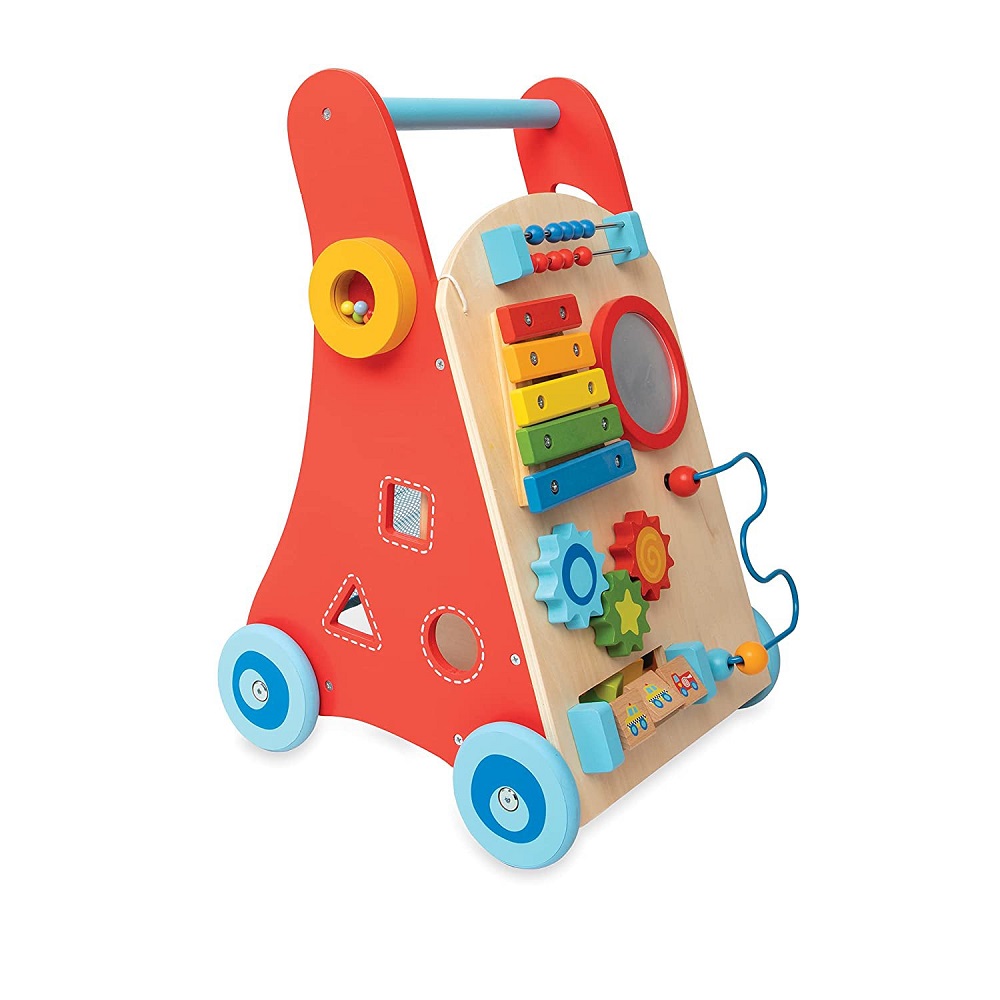
Types of Development Toys for Babies
Sensory Toys
Sensory toys are designed to engage a baby’s senses and promote exploration. These toys come in various forms, including textured blocks, soft squeeze toys, and multi-colored rattles. Sensory toys can stimulate touch, sight, and sound, providing a rich sensory experience.
For example, a set of textured balls with different surfaces can encourage tactile exploration. Babies can feel the smoothness, bumps, and ridges while learning how to grip and manipulate objects. Sensory play encourages curiosity and cognitive development, laying the groundwork for future learning.
Soft Toys
Soft toys play a vital role in a baby’s early development. These cuddly companions not only provide comfort but also offer opportunities for imaginative play. Soft toys can range from simple plush animals to more interactive styles with attached teethers or crinkle sounds.
When babies cuddle or hug soft toys, they experience emotional connection and security. Additionally, introducing them to various characters can spark imaginative play, even at an early age. These toys help in fostering social-emotional skills as babies learn to express affection and empathy.
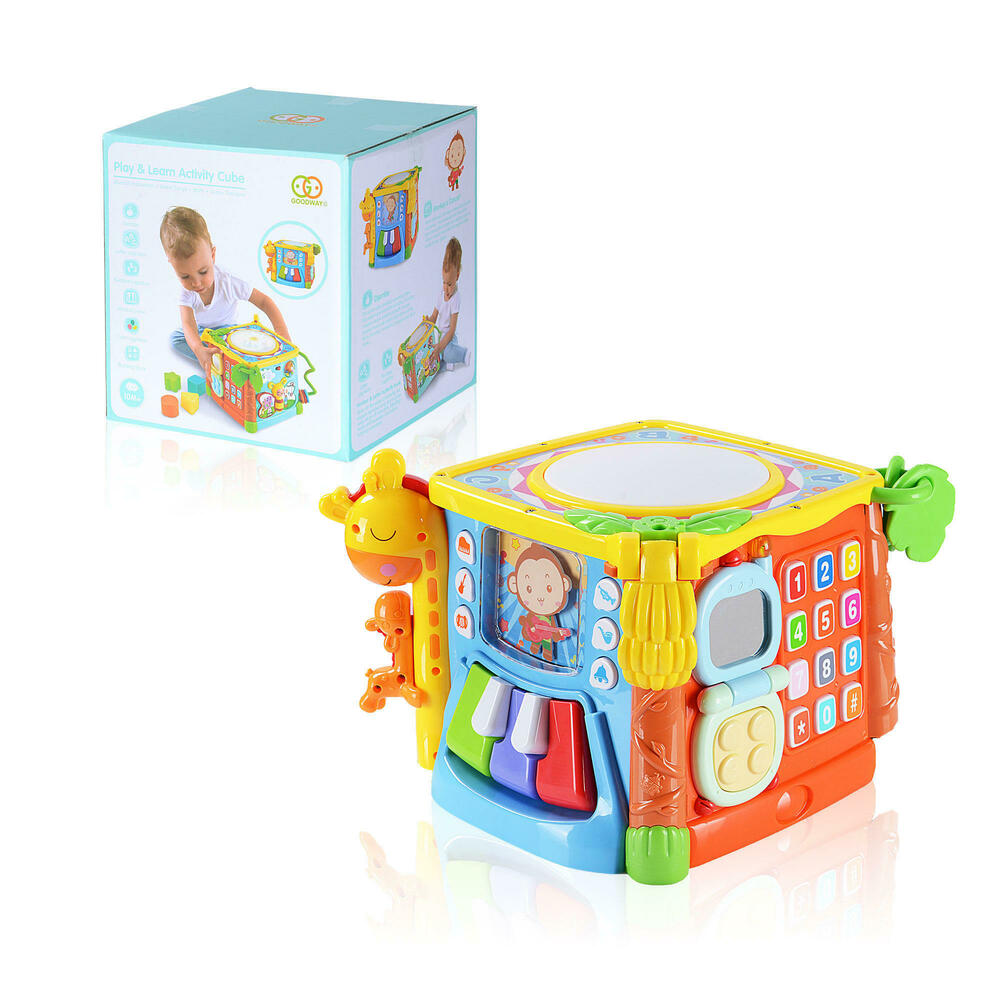
Motor Skill Development through Play
Gross Motor Skills
Gross motor skills involve the use of large muscle groups, allowing babies to perform movements such as crawling, sitting, and walking. Toys that encourage movement can significantly contribute to developing these skills.
Activity gyms and playmats with hanging toys promote reaching and grasping. These setups encourage babies to strengthen their muscles as they stretch for toys. As they grow older, push toys and walkers can assist in practicing balance and coordination, leading to confident walking.
Fine Motor Skills
Fine motor skills require more precise movements involving smaller muscle groups. Toys that encourage grasping, stacking, and manipulation are excellent for fine motor development. Blocks, pegboards, and stacking cups allow babies to practice hand-eye coordination and dexterity.
Engaging in activities such as placing blocks on top of one another helps babies develop control over their movements. As they experiment, they learn about balance and spatial awareness. These skills are essential for tasks like writing and self-feeding as they grow and develop.
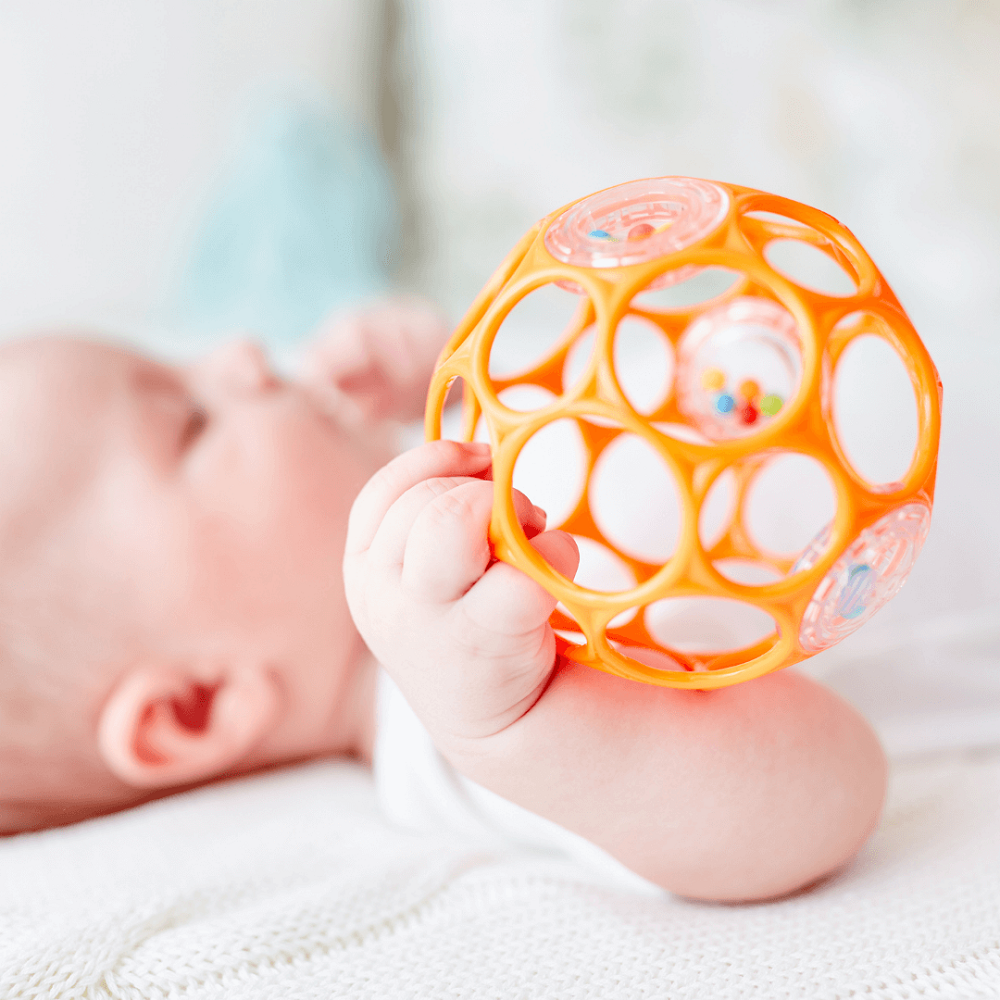
Cognitive Development through Innovative Toys
Interactive Learning Toys
Interactive learning toys are designed to engage babies with sounds, lights, and various modes of play. These toys often include buttons, levers, and touch-sensitive surfaces to stimulate exploration and learning. Many toys are geared toward teaching letters, numbers, shapes, and colors in a fun and engaging way.
For example, a musical activity center can introduce babies to rhythms and melodies while promoting auditory development. By pressing buttons or turning knobs, they discover cause and effect, enhancing cognitive skills. Parents and caregivers can join in the fun, making playtime an opportunity for interaction and shared learning.
Puzzles and Problem Solving
Puzzles and problem-solving toys promote critical thinking and cognitive development. Simple shape sorters or stacking rings encourage babies to identify shapes and sizes while enhancing their problem-solving abilities.
Engaging in puzzle play helps babies develop patience and persistence as they figure out how to fit pieces together. Working on these skills fosters independence and confidence in their abilities. Over time, babies will expand their understanding of spatial relationships and improve their cognitive skills.
Social Interaction through Play
Group Play and Collaboration
Playing with others is essential for developing social skills. Group play encourages babies to interact with siblings, peers, and caregivers, allowing them to learn important skills such as sharing, taking turns, and cooperation. Toys that promote group activities, such as large building blocks or collaborative games, facilitate social interaction.
When babies play together, they begin to understand the joy of companionship. This interaction lays the foundation for forming friendships and building stronger communication skills as they grow older. Social play can be highly beneficial for emotional development, helping babies navigate feelings and relationships.
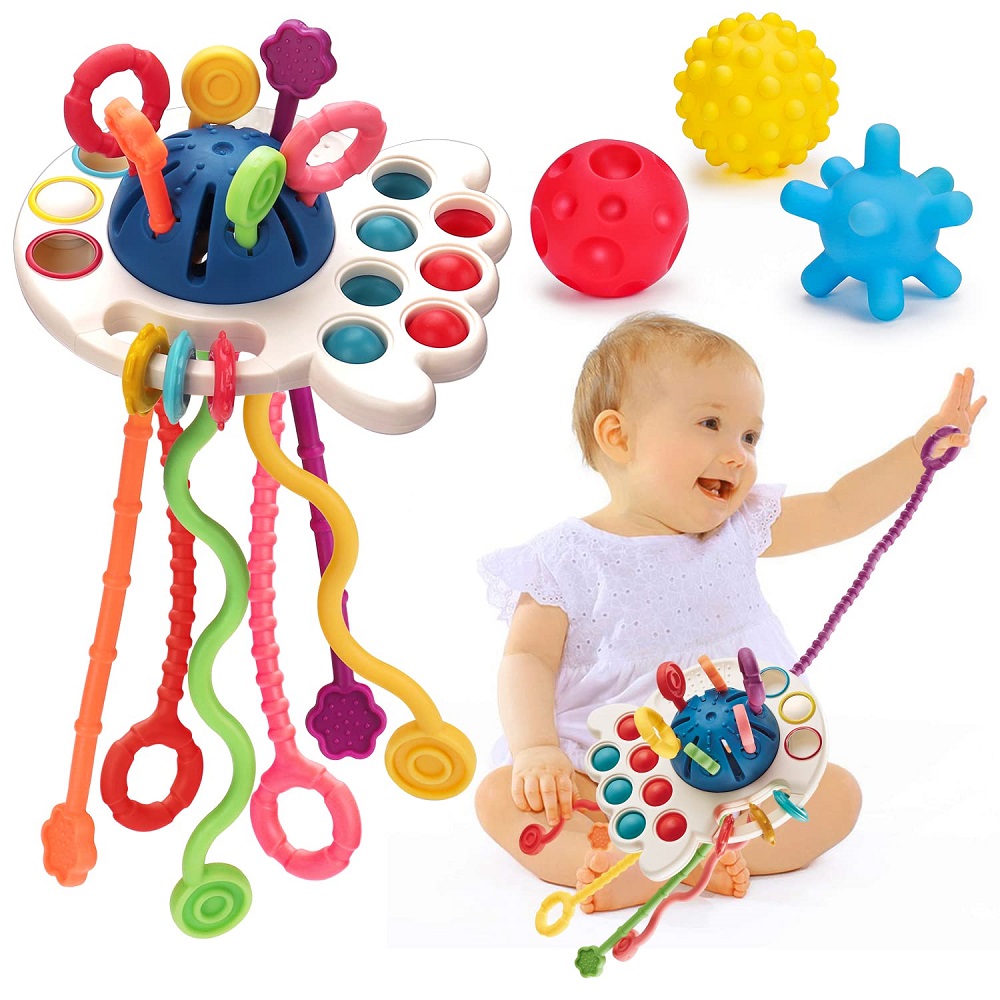
Role-Playing and Imaginative Play
Role-playing toys, such as kitchen sets or doctor kits, invite babies into a world of imaginative play. These toys allow them to explore different roles and scenarios while enhancing social skills. Through pretend play, babies can express their emotions and learn how to interact with others in various situations.
For example, a play kitchen encourages babies to mimic cooking, fostering creativity and role reversal. In this interactive environment, they may learn how to communicate their needs and desires effectively. This imaginative play is critical in developing empathy as babies learn to see things from others’ perspectives.
Long-Term Benefits of Baby Development Toys
Lifelong Learning Foundations
The skills babies acquire through play with development toys have lasting impacts on their future learning. Engaging with various toys lays the groundwork for a love of learning, curiosity, and exploration. As babies become accustomed to active problem-solving and creative thinking during play, these traits will serve them well in their educational journeys.
Additionally, the emotional and social skills developed during early playtimes foster resilience and interpersonal relationships. Learning how to communicate, share, and cooperate can contribute to their success in school and beyond. The foundation set during infancy and toddlerhood shapes how children interact with the world as they grow.
Strengthening Family Bonds
Playing with baby development toys together provides an opportunity for parents and caregivers to bond with their babies. They can create lasting memories by engaging in shared play experiences. This quality time strengthens emotional connections and provides reassurance to babies, promoting feelings of security and love.
Whether building with blocks, solving puzzles, or playing pretend, these activities create invaluable moments that benefit both the child and the adult. Encouraging play in a supportive environment also boosts confidence and self-esteem. The benefits of shared play extend beyond childhood, fostering family relationships that last a lifetime.
Embracing Play for Baby Development
In conclusion, baby development toys play a crucial role in enhancing skills through fun and play. They provide opportunities for cognitive, physical, social, and emotional growth during a critical time in a child’s life. Every toy chosen can enhance a specific aspect of development, from sensory exploration and motor skill improvement to emotional bonding and social interaction.
Selecting appropriate toys, prioritizing safety, and embracing different types of play is vital for parents and caregivers. The right toys can foster a love for learning and leave a lasting positive impact on children. By understanding the significance of play in early development, parents can create rich and engaging play experiences that stimulate growth and joy.
Encouraging play through baby development toys is an investment in a child’s future. As families embrace this journey together, they contribute to the development of confident, capable, and well-rounded individuals. So, let the fun and learning begin—after all, through play, the world truly becomes a playground for exploration!
